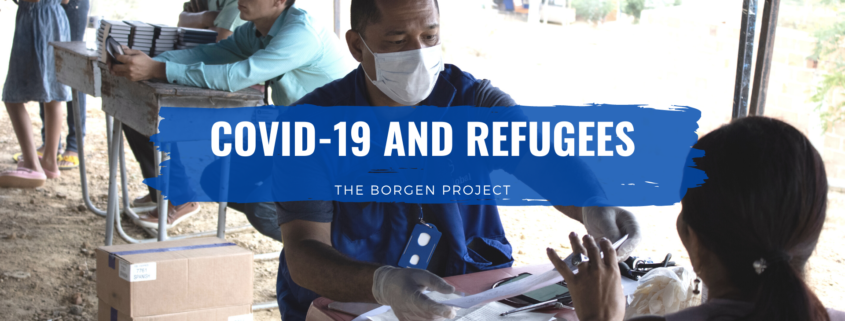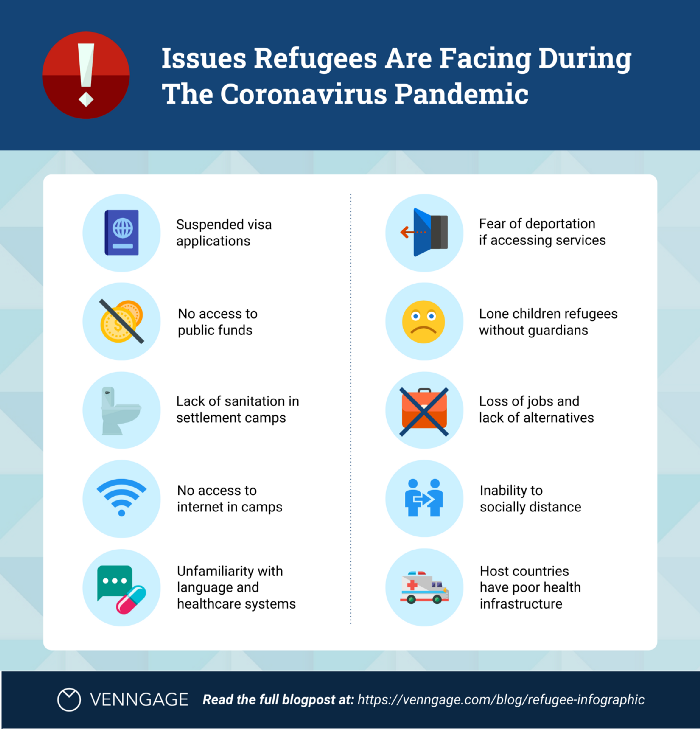
As the novel coronavirus continues to spread across the world, it has introduced immense and unique challenges to refugees. According to the International Rescue Committee (IRC), people in refugee camps in Syria, Greece and Bangladesh are at higher risk of testing positive for COVID-19 due to densely populated conditions. The conditions are denser than those on the Diamond Princess cruise ship where the transmission of the virus on the cruise ship was four times faster than in Wuhan.
Key Data
- According to a 2019 United Nations report, the global refugee population has nearly doubled since 2012 and is at the highest ever recorded.
- In 2019, UNHCR reported 79.5 million individuals who were forcibly displaced, 26 million of them being refugees.
- Nearly 90% of refugees live in developing countries that often struggle to provide basic services.
- Out of 216 countries affected by COVID-19, 134 host refugees.
Major Threats COVID-19 Poses to Refugees
- UNHCR has stressed that refugees living in refugee camps are particularly vulnerable to outbreaks of COVID-19 due to high population density and poor medical infrastructure.
- COVID-19 has been identified in dozens of refugee camps across the globe.
- Many refugees suffer from underlying health conditions due to poor nutrition or reduced access to vaccines, which makes them highly vulnerable to COVID-19.
- The spread of COVID-19 has been obstructing the aid community’s ability to address the needs of refugees due to the domestic impact of the virus.
- COVID-19 has affected the reunification of refugee families, causing those who were slated to join resettled family members to remain in refugee camps for the foreseeable future.
- There will be a continued loss of income for refugees with the prolonged effects of COVID-19. There are increased barriers to the labor market, where sectors refugees are typically involved in, such as the food industry and manufacturing, are particularly hit by the pandemic.

Actions Taken
- UNHCR has scaled up its work to keep refugees and internally displaced people safe by providing life-saving support, including water, medical care and hygiene materials.
- UNHCR supports communication efforts through the latest community networks and provides guidance and fact-based information on prevention measures for COIVD-19, such as hand washing and social distancing,
- Under WHO’s guidance, UNHCR is working with ministries of health and local partners to review the capacity of public health services, putting contingency plans and mechanisms in place in response to an outbreak.
- Several countries have relaxed immigration rules for refugees and migrants who are medically trained, allowing doctors, nurses and other healthcare workers to help combat the coronavirus.
Urgent Action Required
- Testing and services must be provided to everyone within a geographic region, regardless of their immigration status.
- It is essential for high-income countries, even those hit hardest by COVID-19, to help fund the global response in low- and middle-income countries.
